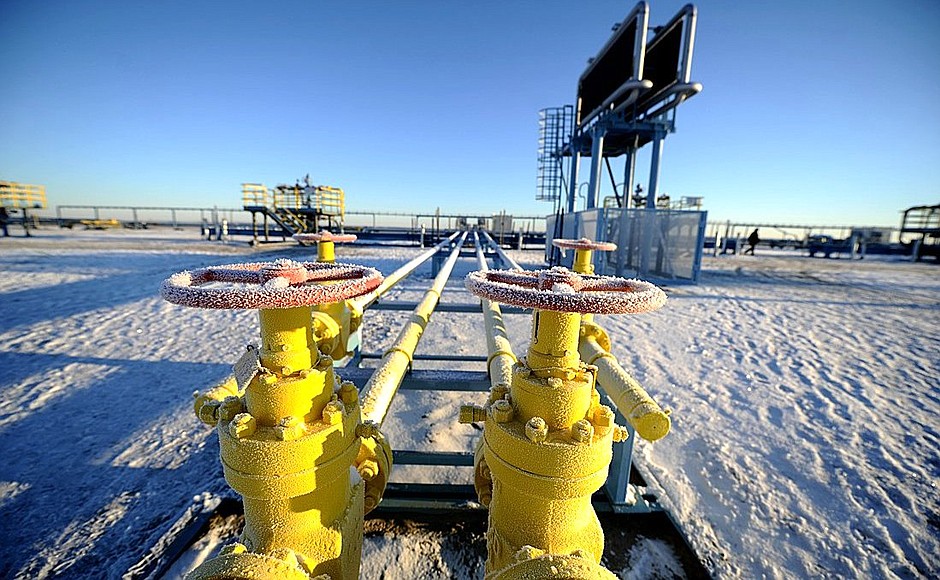Serhiy Makogon, Ukrainian gas transmission system operator OGTSU boss speaks on Nord Stream 2, future of gas supplies through Ukraine and possible perspectives for cooperation with Poland and Central and Eastern Europe in LNG, hydrogen and biomethane sectors.
BiznesAlert.pl: Is NS2 to be blocked by U.S. sanctions?
Serhiy Makogon: We greatly appreciate the bipartisan opposition to NS2 in the U.S. Congress, which has lead to the passing of the PEESA (Protecting Europe’s Energy Security Act) in 2019. The U.S. State Department has already demonstrated its strong commitment to fully implement the sanctions, as it rightfully recognized that „Russia uses its energy export pipelines to create national and regional dependencies on Russian energy supplies, leveraging these dependencies to expand its political, economic, and military influence, weaken European security.” Until the construction work stops, we would welcome any and all additional measures by the U.S., E.U., Germany, Poland, or any other country that would lead to complete and irreversible cancellation of this diversionary and dangerous pipeline.
What would be the OGTSU plan of pipelines modernization if there is no NS2?
Irrespective of NS2, GTSOU is committed to the modernization of our infrastructure assets. International gas transit is an important part of our business, but we also serve a large domestic market of ~30 BCM/year. Our core objective remains to maintain a robust system that meets the needs of our customers in Europe and Ukraine at the highest level of efficiency. Our system’s full capacity is 146 BCM/year; and we will continue to optimize it for the actual and projected transit volumes. At the first stage of optimization the transit capacities will be decreased to 50-65 bcm/a and after 2024 we will decide on the next stage of optimization depending on the transit volumes after 2024. It is not economically reasonable to support transit capacities without long term transit booking as it would be too costly for local network users to cover maintenance needs for the idle transit capacities. Just keeping backup solution for RU-EU gas transit or covering transit needs of Gazprom during annual maintenance of Nord Stream 1 and 2 – is not sustainable business case for our company.
What is the state of gas reform in Ukraine, what are the main obstacles now?
Ukrainian gas market reform is one of the most important reforms by all measures. It is also a quite successful reform, which is recognized by the energy experts in Ukraine and outside. Energy Community Secretariat and European Commission are making regular assessments of the regulatory progress that we make as a country. But as a gas Operator we may note that 700 traders are working on a local market, up to100 importers are brining gas into Ukraine. 10 bcm of gas is stored in Ukraine in the current year for the benefit of foreign traders using short-haul and special customs regime. This year the retail gas market was also opened and now households are free to choose suppliers. We see battles between different suppliers to get new industrial and household customers. There are still some issues to be tackled. But all in all – gas reform has been on track. As operator we need to make sure that our financial stability is guaranteed and protected and that we have all the rights that our peers in other countries enjoy. The State needs to prevent debt accumulation at all levels.
What is the state of relations with foreign investors in gas infrastructure?
The GTSOU is a state-owned enterprise, where the Ministry of Finance of Ukraine has a 100% stake. The ownership structure is a matter of Government policy and currently has some restrictions. The existing tariff is enough to cover all needed operational expenses and capital investments. During next 10 years we plan to invest about 1,5 bln USD in modernization of the GTS. We also spend 150-200 mln USD annually in regular maintenance.
However, at the level of the GTSOU we welcome the interest of the international investment. Should we see that the partnership is strategically reshaping the future of TSO and providing unique guarantees for the future of transit or contributes to the Ukraine’s energy sector security, we are ready to have such talks and advocate for a political support changing the limitations. We also invite our partners to work with us on innovative projects in hydrogen, biomethane, etc.
What are the alternative sources of gas transit through Ukraine?
At present, Russia’s Gazprom maintains a full monopoly on the access to export pipelines that bring gas into our transit system on Ukraine’s eastern border. At the GTSOU, we have plenty of spare capacity and could transit gas from Central Asia or other gas producers in Russia (e.g. Novatek, Rosneft, and Lukoil, etc.). The European Commission recognizes this as a serious impediment to competition and has recently published a detailed report on market distortions in Russia.
We are also interested in developing new business models, in particular related to LNG, which could be delivered to Poland and then transited to Ukraine for sale or storage in the Ukrainian underground storages. I see that Poland and Ukraine could become an entry gas for LNG to the Eastern and Central Europe.
Additionally we are interesting in delivering bio methane and hydrogen in the EU and currently actively analysis this market opportunity.
What about the Ec-Ukraine-Russia deal on 65 bcm in 2020. What if Russians are not using its full capacity
The new transit contract includes “ship or pay” clause, thus we receive money based on capacity booking, not actual physical flows. For example, in 2020 the booking was 65 bcm, but physically only 55-56 bcm will be transited.
Interview by Wojciech Jakóbik









